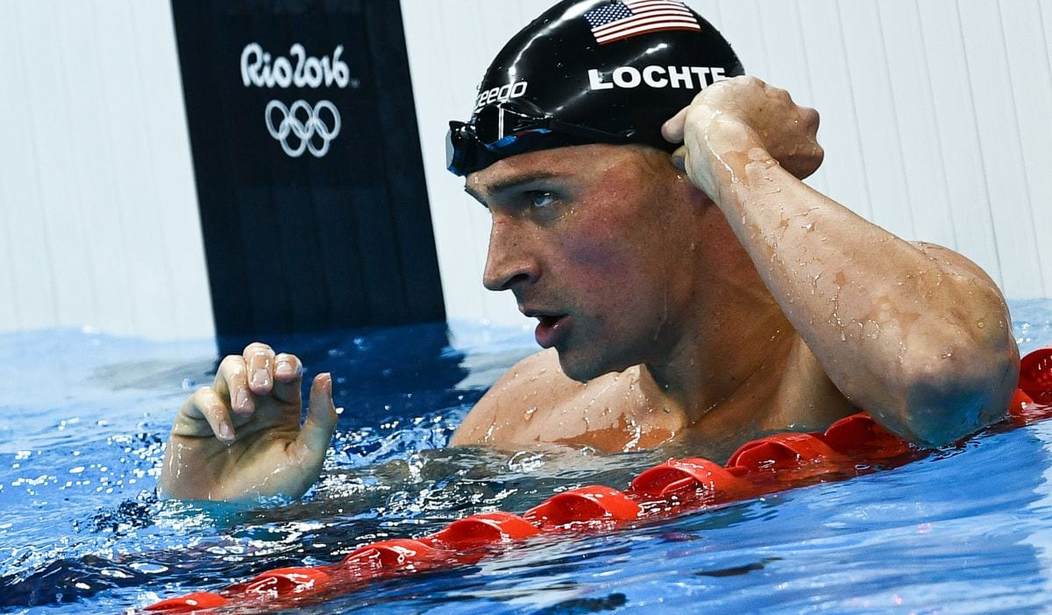A Brazilian judge has ordered the the passports of two American swimmers who claimed they were robbed at gunpoint be seized to prevent them from leaving the country.
Ryan Lochte, James Feign, and two other U.S. swimmers were robbed by men claiming to be police on their way back from a visit to a French hospitality house.
But the judge ordered the passports of Lochte and Feigen seized because he says there are discrepancies in their stories.
Ostrow said Lochte, a gold medal winner in Rio, had “fully cooperated with the Brazilian authorities while in Rio.”
“He sat for a victim interview with the Brazilian Tourist Police, USOC Security, State Department, FBI, and anyone else that the Brazilian authorities requested to be present,” he said.
“He left for the United States as he was planning to after he completed his events. He was not asked by the Brazilian authorities to remain in Brazil for further investigation.
“Had they asked, he would have stayed and assisted. They still have not reached out to ask for additional information.”
Earlier Wednesday, the lawyer said that he and Lochte stood by the account provided to authorities.
“We stand by what he provided in that interview and signed off on.”
Judge Keyla Blanc De Cnop said police still need more time to assess whether the US swimmers provided false information and if they filled a false crime report.
The judge said the athletes’ behavior upon arrival at the Olympic Village — combined with the inconsistencies in their statements — led police to question the veracity of their claim.
Judge Blanc De Cnop noted that Lochte had said a single robber approached the athletes and demanded all their money (400 real, or $124).
Feigen’s statement said a number of robbers targeted the athletes but only one was armed, the statement said.
Another potential issue highlighted by judge was the behavior of the athletes on arrival at the Olympic Village in the aftermath.
“It seems the alleged victims found their physical and psychological integrity were unshaken, even fooling about with each other,” said the judge, referring to footage from security cameras in the Olympic Village.
Public speculation has been fueled by the release of a video obtained by the Daily Mail, which it said was filmed shortly after the robbery.
The video appears to show the four swimmers returning to the Olympic Village looking relatively relaxed, and in possession of high-value items that might be expected to have been taken in an armed robbery.
CNN is unable to authenticate the video.
A spokeswoman for the Civil Police told CNN that the case had attracted attention among Brazilians because the victims said their phones and watches hadn’t been taken — items that would be a prized target for thieves in crime-plagued Rio.
Why would the athletes lie? What motivation would they have to make up a story about a robbery?
Certainly they garnered worldwide attention — but so did winning a gold medal. If they were involved in illegal activities — gambling, prostitution, drugs — there was little chance of them being caught considering they were under no curfew and no one noticed them coming back late so there was no reason for a cover story.
Discrepancies in their stories there may be and the mystery of why the robbers didn’t take valuable personal items needs to be addressed, but the dramatic move of seizing the victims’ passports seems unnecessary. Also, why did it take authorities two days to decide there was a problem with the victims’ statements?
Perhaps an alternate theory might fit the facts. The athletes claim that at least one of the robbers flashed a police badge. Suppose that the taxi the swimmers were riding in was pulled over by police. The young Americans got mouthy, the cops got mad and drew their guns. They then told the athletes they wouldn’t be arrested if they made a small “donation.” The cops let the kids keep their phones and watches and sent them on their way.
Whatever happened, Brazilian authorities should concentrate on finding the criminals responsible and leave the swimmers alone.










Join the conversation as a VIP Member